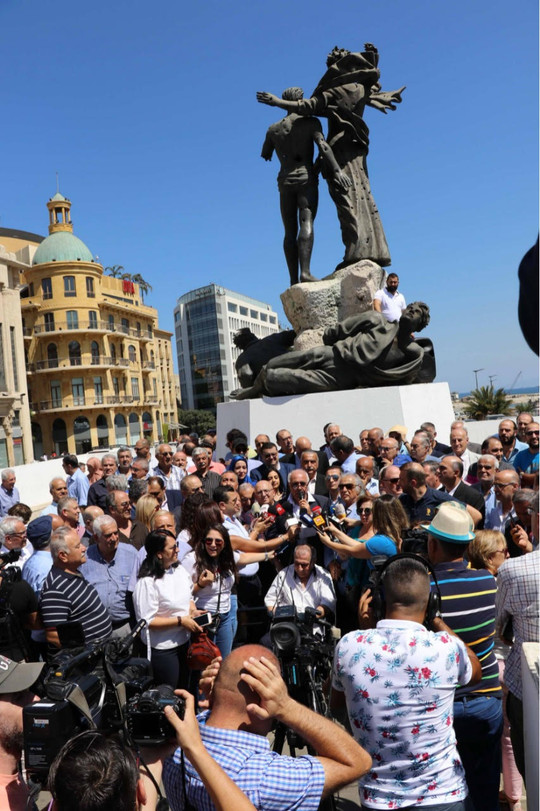Since 2016, the press in Lebanon has faced its worst crisis ever. It is estimated that over 70% of the newspapers and magazines have been closed down, leaving hundreds of journalists without jobs and most of the time without any compensation. The crisis is now spreading to other media platforms, especially the audiovisual sector where some journalists have not been paid for several months.
The LJS, which traditionally organises journalists in the press have been trying since 2017 to remove the regulatory restrictions on its ability to organise journalists from across sectors but the government continues to refuse to adopt the proposed changes.
The sit-in that took place yesterday in Martyr's Square in Beirut brought together members of the LJS, journalists, representatives of professional associations and political parties.
Youssef El Kosseifi, president of the LJS, said "We meet today, to raise our voice loudly against the official negligence of the press and media sector and the indifference to the displacement of hundreds of colleagues who have become unemployed due to the closure of their media under the pretext of economic and financial crisis and lack of resources, although most of them closed for other reasons."
The LJS has made clear recommendations for a complete change in Lebanon's media environment, including the development of a modern, new media law, the support of the media sector and its employees through a project financed by the general budget, the establishment of pension funds for media workers, the urgent resumption by labor courts of cases filed by journalists and a pardon on all publication violations and publications crimes.
Anthony Bellanger, IFJ General Secretary said: “The legal and regulatory environment for media in Lebanon stands far below the international standards required to foster free and independent journalism. The Lebanese government and legislators must take urgent action to reform the media sector including removing all restrictions on the journalists' union's ability to organise and represent all working journalists in the country.”

